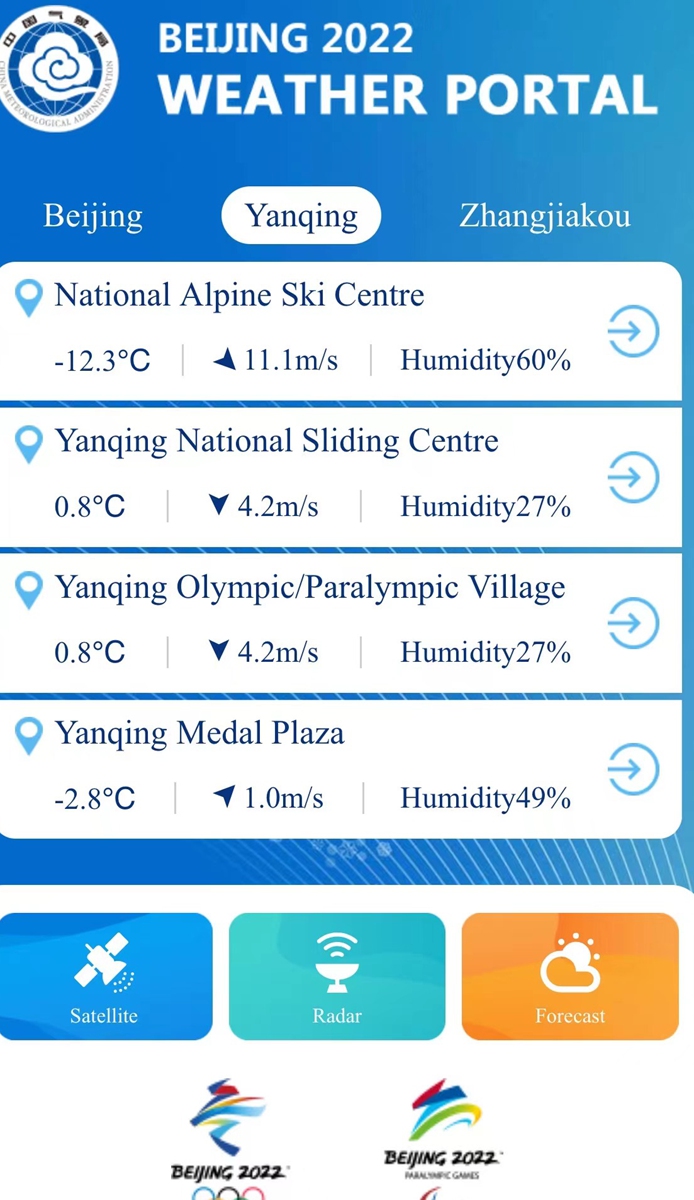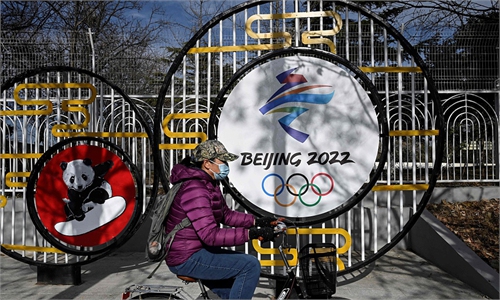China gears up for ‘most 5G-driven’ Winter Olympics
Advanced, ubiquitous services will underline China’s telecom prowess

5G base stations are seen at the National Alpine Ski Center in the Yanqing competition area for the Beijing 2022 Olympic and Paralympic Winter Games on December 14, 2021. Photo: Shen Weiduo/ GT
Driving northwest from central Beijing to the city's Yanqing district, where sits one of three venues for the Beijing 2022 Olympic and Paralympic Winter Games, mobile phone users will find their devices locked onto a 5G signal whether they are in a tunnel, on top of a mountain or in a valley, enabling seamless video, livestreaming or online meeting service coverage.This offers a first glimpse into how China has used 5G to empower the upcoming Winter Games, and what it will be like during the upcoming "5G Olympics" - which is said to be the most 5G-driven sports event ever held.
During a visit to the Yanqing competition area on Tuesday, a Global Times reporter was able to easily spot 5G base stations along the way and inside each venue, guaranteeing comprehensive 5G coverage for athletes and visitors alike.
For those attending or competing in the Games, an immersive 5G experience will start the moment they step into a competition area.
Across the National Alpine Ski Center in Yanqing, 5G is being used to achieve rapid temperature measurement, facial recognition and registration with just one scan.
Athletes and visitors can either use their ID card, or simply complete a facial scan using a device called wozhihu located at the entrances of stadiums and restaurants, to ensure smooth movements by marshalling crowds and athletes in the face of the COVID-19 epidemic.
As the Winter Games are susceptible to local weather conditions, high-speed dedicated lines and 5G transmission technology are being used to ensure real-time updates of weather data.
Visitors and staff can check real-time temperatures, wind speeds and humidity levels for all three venues via the official weather forecast website for the Winter Olympics referred to as the 'Beijing 2022 weather portal.'

Screenshot of Beijing 2022 weather portal at 2 pm (GMT+08:00) on December 14, 2021 Photo: GT
With Alpine skiing widely known to be one of the world's most dangerous sports, 5G is also being used to monitor the health of athletes remotely, relaying critical information to health and medical officials monitoring each event.
Additionally, 5G smart solutions can be found in self-driving shuttle buses, photo booths in each media zone, and the instant uploading of videos and virtual reality (VR) content.
There are about 2,000 base stations in total, including both 4G and 5G, which will provide stable internet coverage across all major venues during the Games, Cai Kai, general manager of the Network Optimization Center at China Unicom Beijing Branch, told the Global Times on Tuesday.
China Unicom is the official and only telecommunications service provider for the Beijing 2022 Winter Olympics.
Cai noted that since one out-of-action base station could paralyze parts of the network, roughly 3,000 to 4,000 staffers will be deployed to maintain an "absolutely safe" network.
"We will ensure each base station has responsible maintenance staff nearby," Cai said.
Moreover, a portable device called 5G CPE will be allocated to each venue in case of emergencies. The small device is easy to install, making it an ideal choice for network emergencies or boundary patching.
It can quickly provide high-speed 5G internet access in an area experiencing an outage, a member of the network's technical staff told the Global Times on Monday.
Though preparations have been rolled out without any glitches, the real test will be when the Games begin, as industry experts explained that the diversity of businesses, the complexity of landscapes for 5G base stations, and a high network load will all bring challenges.
The Beijing Winter Games will be held from February 4 to 20, 2022.
Observers told the Global Times that the Beijing Winter Games will be a rare opportunity to display innovations for consumer-facing 5G technology.
The valuable experience at the Winter Olympics will also be applied to future 5G development, Yang Lifan, deputy general manager of China Unicom Beijing Branch, told the Global Times at a press conference held in Yanqing on Tuesday.
Yang also mentioned at the press conference that China Unicom aims to build the world's leading 5G network in Beijing focused on large-scale commercial use.
5G and other telecommunications devices developed and built for the event will represent an Olympic legacy and serve residents of the capital into the future.
China has completed the construction of the world's largest 5G standalone network, said Tian Yulong, chief engineer at the Ministry of Industry and Information Technology (MIIT) in July, noting that some 961,000 5G base stations had been built across the country.
The country expects to see the number of 5G users exceed 560 million by 2023. By that time, China's 5G network is expected to be used by over 40 percent of personal mobile phone customers, and every 10,000 people in the country will enjoy more than 18 5G base stations, according to a report from the Xinhua News Agency.



